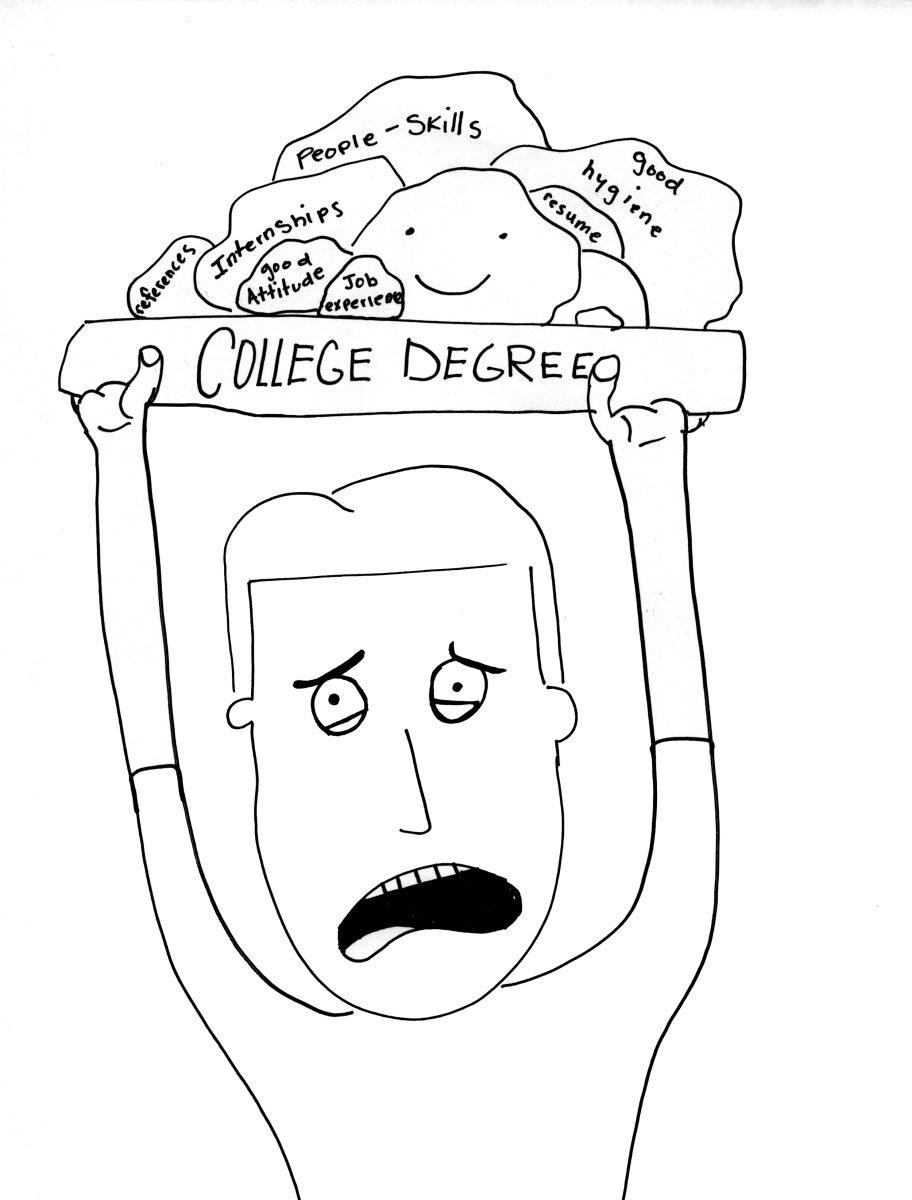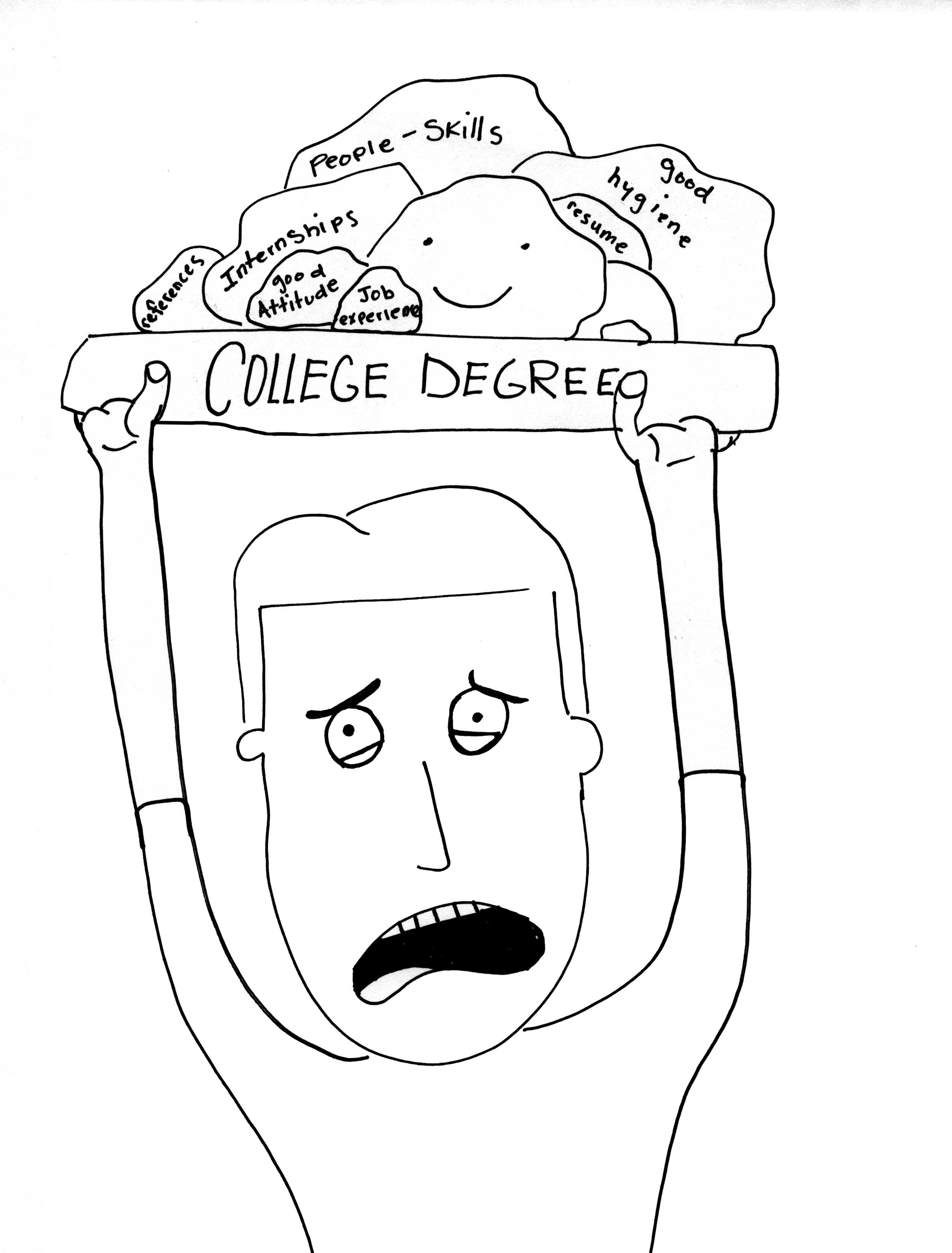COURTESY // Gustavo Vasquez
New college freshmen are the result of a dozen years of influence— family members, teachers, peers and society frame young minds with the idea that, in order to achieve a successful life, one must obtain a college degree.
Ironically, when one gives into the countless statistics thrown at them and decides to pursue a degree, they’re met with constant discouragement concerning their extended education.
In today’s world, little work and a big payout are glamorized through television and film. Hollywood takes one example of someone who didn’t earn a degree, and they make their story known to the world. Many see Bill Gates and Mark Zuckerberg and think to themselves, “If they could do it without a degree, why can’t I?”
The unfortunate truth is that these people are the exception. Most of us are the rule.
In reality, employers look for two crucial elements when they consider an employee; relevant experience and a degree, more often than not a bachelor’s degree. Not one or the other.
Most college students hear rumors that fewer jobs will be available after graduation, since more and more people are graduating college. A recent study has found otherwise.
According to the Public Policy Institute of California, California will be short 1.1 million bachelor degree-holding workers by 2030. This is based on the assumption that if current trends continue, California’s demand for workers with bachelor’s degrees will surpass its supply, making a degree not only valuable, but still very necessary to survive in the future job market.
Employers look for college graduates not only because they have been taught by professionals in their field, but because general education requirements shape students into more well-rounded individuals by teaching them how to think for themselves.
College is also beneficial personally. A university cangive one access to support as they venture into the real world of careers and independence.
What many do not consider is the fact that there is not one achievement that will set you up for a career. A degree alone is not enough. Experience is not enough anymore either.
One must have a combination of both to be seriously considered in today’s increasingly competitive job market.
This is one of the main reasons why so many college graduates complain about not being able to find a job. Most college students don’t consider they must acquire experience in their field during their studies. Internships are a great option when considering ways of doing this.
According to the National Association of Colleges and Employers, in 2013, 60 percent of college graduates received at least one job offer if they completed an internship. Only 38.6 percent of students with no internship experience a received job offer.
Contrary to many people’s beliefs, a degree is not the only thing that one needs to efficiently progress one’s career. With pursuing a degree comes the opportunity to gain professional experience.
One of the most common complaints that plague every campus in the nation is the cost of college tuition.
According to College Board, the average yearly cost of tuition for in-state students was $9,139 for the 2014-2015 academic year. Multiply this by four years, the average length it takes to complete a bachelor’s degree, and the average cost of a degree will come to $37,276.
While this sounds like a hefty bill without deeper analyzation, The Federal Reserve Board of San Francisco reported in 2014 that a college graduate on average will earn $830,000 more in their lifetime than a high school graduate.
This covers one’s tuition about 22 times over. Yes, college is expensive – but not earning a degree is far more pricey.
A degree is one of many mandatory checkpoints when it comes to career qualifications.
No it is not the only one, but it is important, and one can’t skip that checkpoint.





![[Both photos courtesy of sonoma.edu]
Ming-Ting Mike Lee stepped in as the new SSU president following Sakakis resignation in July 2022](https://sonomastatestar.com/wp-content/uploads/2024/04/CC4520AB-22A7-41B2-9F6F-2A2D5F76A28C-1200x1200.jpeg)



























